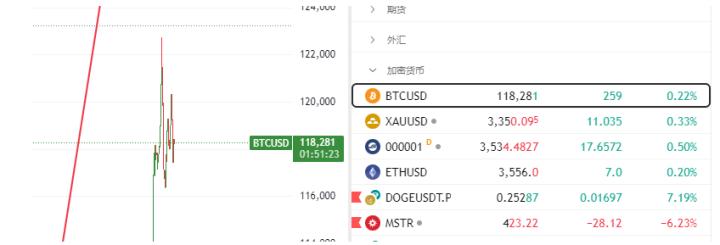Starting from August 1, 2025, the Hong Kong Monetary Authority (HKMA) will open stablecoin license applications, marking a new phase of formal implementation for stablecoin development in the Hong Kong region.
This policy has been in the works for a long time. Over the past year, the HKMA has promoted sandbox testing for stablecoin application scenarios and gradually clarified regulatory guidelines and application pathways. Now, participating institutions will transition from testing to formal issuance and circulation under the regulatory system.
According to incomplete statistics, dozens of institutions have indicated they will apply for stablecoin licenses. Meanwhile, more local banks, tech companies, and Web3 teams are preparing further work around clearing systems, custody mechanisms, and payment interfaces.
This article will continue to track the latest news about stablecoins in Hong Kong for practitioners to reference.
Hong Kong Stablecoin Regulatory Progress
I. Regulatory System Officially Takes Effect
The "Stablecoin Ordinance" will officially take effect on August 1, 2025.
The HKMA will simultaneously publish four related documents (only in English):
· Consultation Conclusion and Official Guidelines for Regulated Stablecoin Issuers
· Consultation Conclusion and Official Guidelines on Anti-Money Laundering and Counter-Terrorist Financing (Applicable to Licensed Stablecoin Issuers)
· Summary of Stablecoin Issuer Licensing System
· Summary of Transitional Provisions for Existing Stablecoin Issuers
II. Licensing Process and Requirements
The HKMA will accept the first round of stablecoin issuer license applications from August 1 to September 30, 2025.
Interested applicants are encouraged to proactively contact the HKMA through the official email before August 31 to communicate regulatory expectations and receive feedback.
The HKMA reminds market participants to be cautious in public communications and not falsely claim to have obtained a license or be in the application process, otherwise it would be illegal.
III. Application Conditions and Compliance Requirements
All stablecoin holders in Hong Kong must have their identities verified, essentially equivalent to real-name registration.
HKMA Assistant Chief Executive (Regulation and AML) Chan Ching-hung stated that this requirement is stricter than the previous "whitelist" system; in the future, if technology matures, there may be opportunities to relax it.
Legislator Ng Chak-chung added: The HKMA will indeed implement KYC, with real-name being one possible method, and the specific plan will be proposed by the issuer and confirmed after HKMA review.
IV. HKMA's Attitude Towards Fiat-Pegged Currencies
HKMA Deputy Chief Executive Chan Wai-man stated:
· Licenses can be applied for stablecoins pegged to a single fiat currency,
· Licenses can also be applied for stablecoins pegged to a basket of fiat currencies,
· But the currency must be clearly specified during application.
Chan Wai-man also emphasized: The licensing threshold is very high, and the first license is expected to be issued in early next year.
V. Transition Period and Categorized Handling
After the implementation of the "Stablecoin Ordinance", a 6-month transition period will be set, and the HKMA will categorically handle existing issuers:
· Those meeting regulatory requirements: Can obtain temporary licenses;
· Those not meeting standards within 3 months: Must cease operations within 4 months;
· Those not complying with standards: Must terminate operations within 1 month after receiving notice.
Requirements include: full reserves, redemption within 1 day, establishing an entity in Hong Kong, maintaining financial resources, KYC, transaction monitoring, etc.
Violators will face penalties such as fines, suspension, or revocation of licenses.
Latest Stance of Hong Kong Policy Makers on Stablecoins
With the "Stablecoin Ordinance" set to be implemented on August 1, 2025, the Hong Kong government and related institutions have intensively released policy signals regarding stablecoins in various occasions. These statements not only cover regulatory logic and licensing mechanisms but also involve pegged currencies, landing scenarios, and risk management, gradually outlining the actual operational framework of Hong Kong's stablecoin regulatory system.
I. Stablecoins Are Financial Infrastructure, Not Speculative Tools
In all public statements, one position has been repeatedly emphasized: Stablecoins should not become tools for market speculation.
[The rest of the text continues in the same manner...]On July 30, Chen Weimin stated that applicants can choose to anchor a specific fiat currency or a basket of fiat currencies, and only need to declare it clearly when applying.
Previously, Xu Zhengyu had also discussed the possibility of a "RMB stablecoin" multiple times. He pointed out that anchoring the RMB is not legally prohibited, but if it involves exchange rate management and macroeconomic policies, communication and coordination with relevant mainland institutions would be necessary. "Hong Kong has legal space, but if it is to be done, the country's exchange rate and monetary policies must be considered."
Chen Maobo had also noted in his ministerial notes that allowing the use of different fiat currencies as anchor assets would help attract more international institutions to issue stablecoins in Hong Kong based on their actual application scenarios.
V. Cautious Reminders to Investors and the Public
While promoting institutional construction, multiple policy makers have also issued calm reminders about market enthusiasm.
Legislative Council member Wu Jiezhuang stated that Hong Kong has broad space to develop stablecoins, and will become a landing experimental field for the integration of finance and the real economy in the future. However, he specially reminded that facing emerging asset classes, retail investors should remain vigilant, not follow blindly, and fully understand product risks.
The Hong Kong Monetary Authority has also issued an announcement, warning the public to be cautious of unauthorized stablecoin projects or individuals claiming to be "licensed" or "applying for a license", emphasizing that the public bears the risks of holding unlicensed stablecoins.
How Does the Market View Hong Kong's Stablecoin Regulation?
With the Hong Kong Stablecoin Ordinance about to be implemented, the market has been engaged in intensive discussions around licensing pace, scenario paths, and the possibility of RMB anchoring. Voices from securities firms, fund companies, foreign investment banks, and media are gradually revealing the market's structural expectations and potential impacts of this regulatory system.
(Note: The translation continues in the same manner for the entire text, maintaining the specified translations for specific terms.)Companies Clearly Stating They Will Apply for or Are Applying for Licenses
· China Sansan Media
Announced on July 15 that it intends to apply for a stablecoin license in Hong Kong, with funds to come from share placement and cash reserves.
· Tiansheng Capital
Announced on July 11 that it plans to establish a digital asset trading and settlement company, applying for a stablecoin license. Its plan is to use stablecoins for art trading and settlement services, focusing on cross-border trade settlement.
· Duodian Digital Intelligence
Announced on July 3 that it is preparing to apply for a Hong Kong stablecoin license.
· Animoca Brands + Standard Chartered Bank (Hong Kong) + Hong Kong Telecommunications
Publicly stated multiple times that they will jointly establish a joint venture, apply for a license, and issue a Hong Kong dollar stablecoin. The stablecoin will be used for virtual asset trading in games, cross-border trade, and financial settlement.
· JD.com
Has publicly disclosed on its official website that it will issue a stablecoin pegged 1:1 to the Hong Kong dollar. The issuing entity is JD Coin Chain Technology (Hong Kong), and it has been selected as a participant in the monetary authority's stablecoin "sandbox".
· Ant International
According to informed sources in June, the company will immediately apply for an issuer license in Hong Kong after the Stablecoin Ordinance takes effect, and also plans to seek permits in Singapore and Luxembourg.
· Lianlian Digital
According to informed sources, Lianlian Digital is actively exploring applying for stablecoin licenses in Hong Kong and Singapore. Its subsidiary DFX Labs already holds a virtual asset trading platform license issued by the Hong Kong Securities and Futures Commission.
Companies Researching, Monitoring, or Laying Out Related Business
· Ping An Insurance
Responded on the interactive platform on July 21, stating that it has noticed the changes in Hong Kong's stablecoin regulation, maintaining high attention and actively researching.
· Sanwei Information Security
Stated on June 30 that the company has participated in virtual currency and stablecoin-related businesses in the Hong Kong region, and as a cryptographic infrastructure provider, will provide security guarantees for related projects.
Clarification Matters
· Octopus Company
Was rumored to be participating in a stablecoin accelerator project. The company subsequently clarified that it only participated in an exploratory plan led by Brinc in an "advisory capacity", with the nature being conceptual research, not stablecoin product development or formal cooperation.
Click to learn about BlockBeats job openings
Welcome to join the official BlockBeats community:
Telegram Subscription Group: https://t.me/theblockbeats
Telegram Communication Group: https://t.me/BlockBeats_App
Official Twitter Account: https://twitter.com/BlockBeatsAsia







